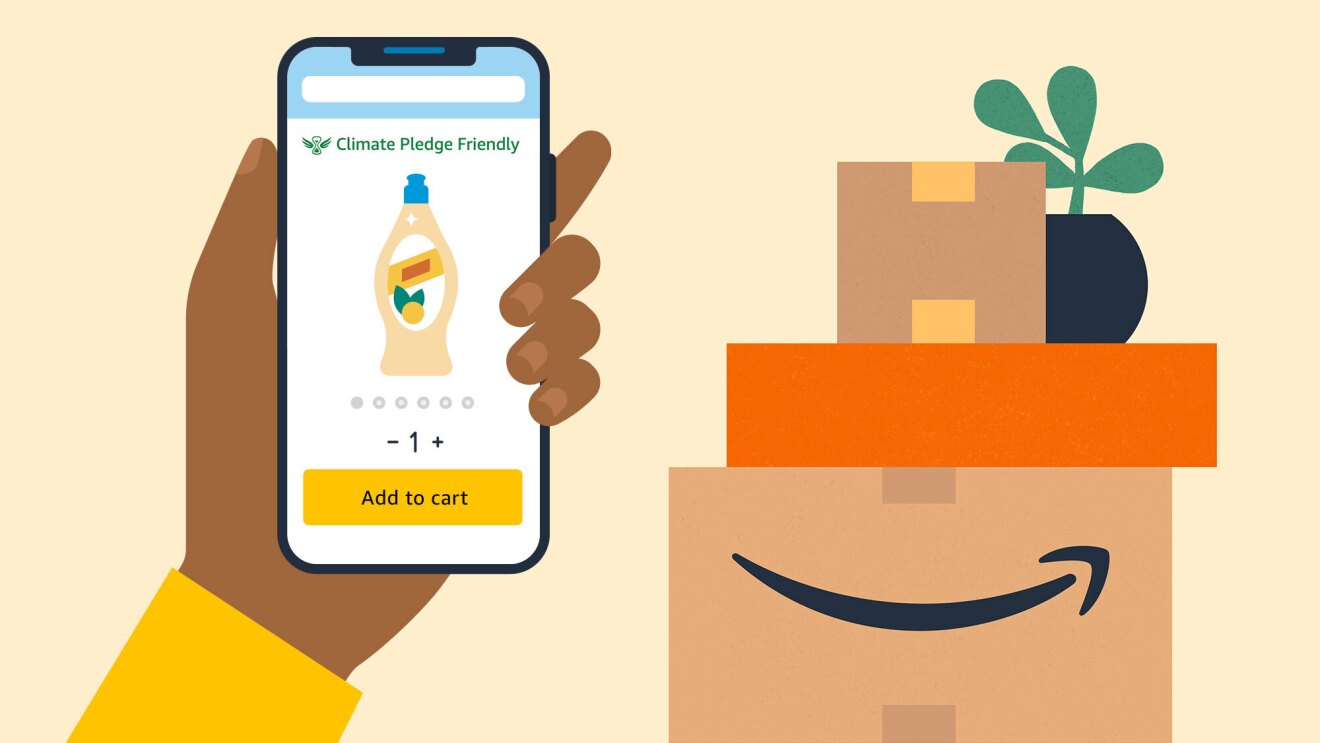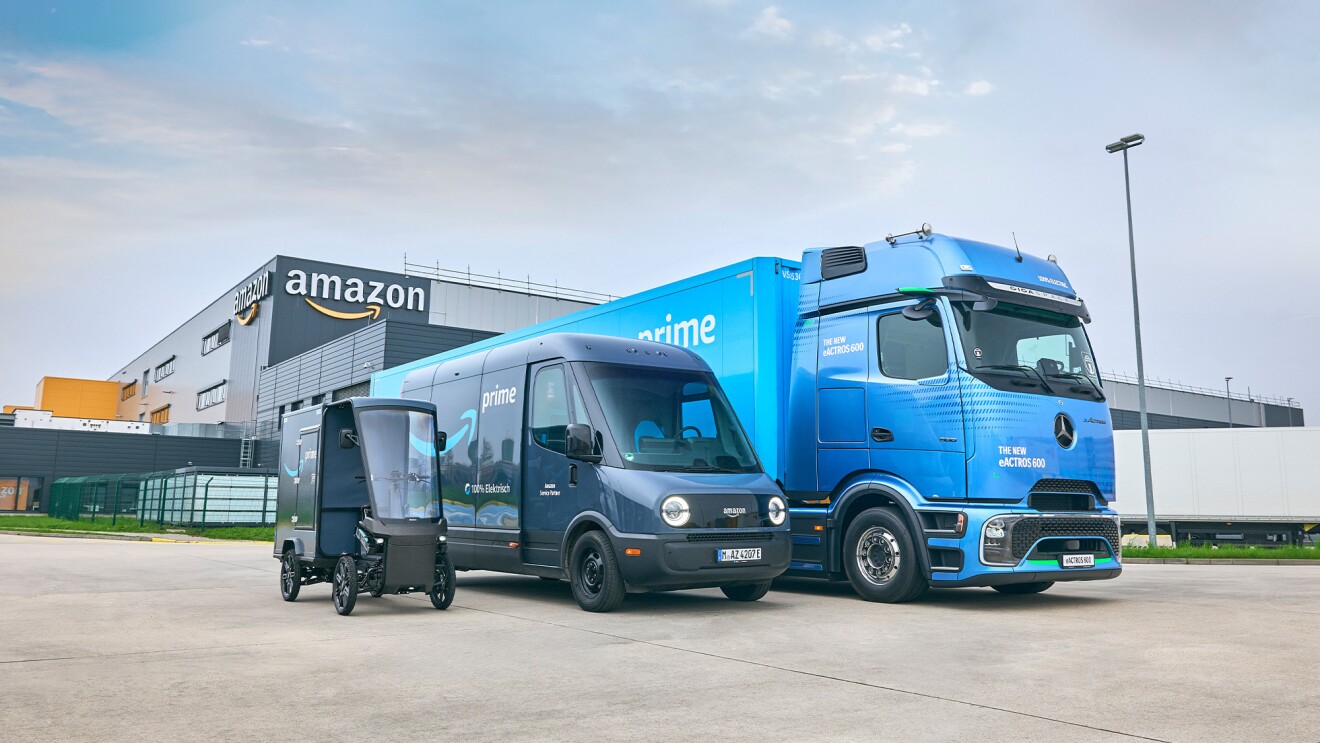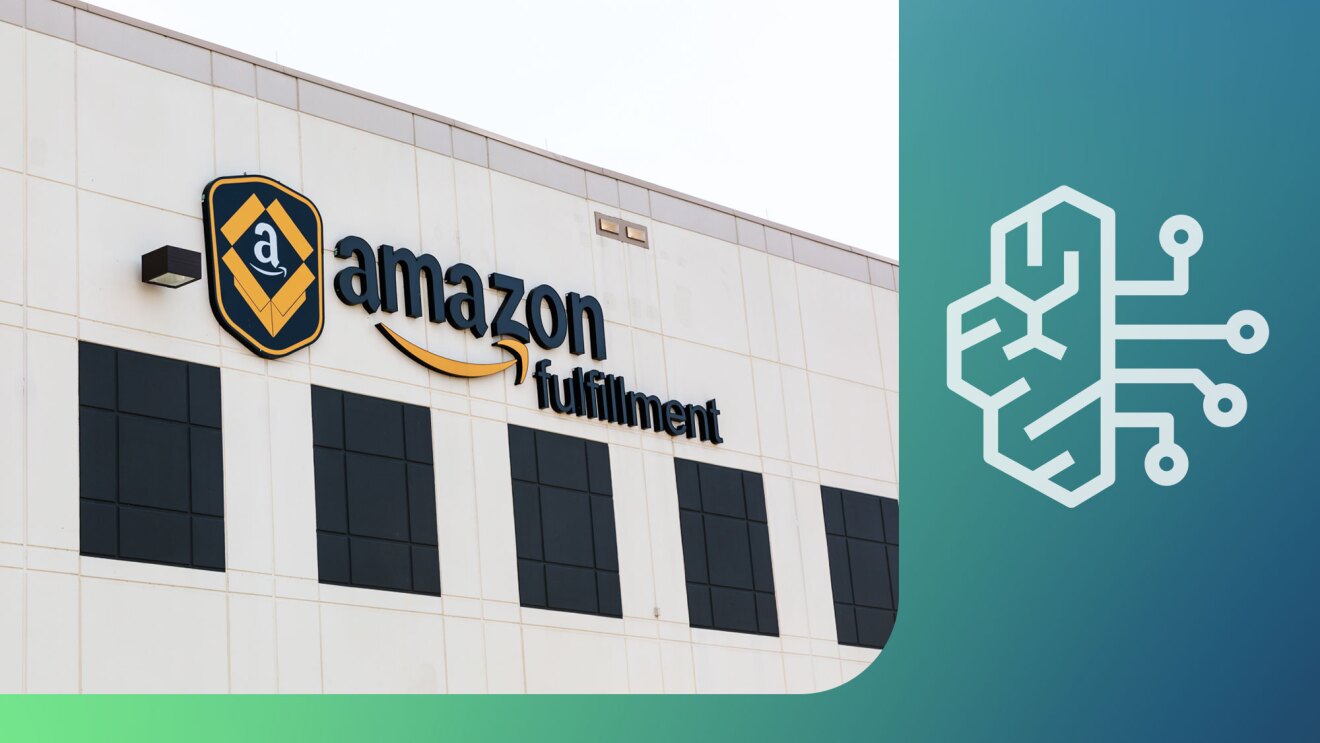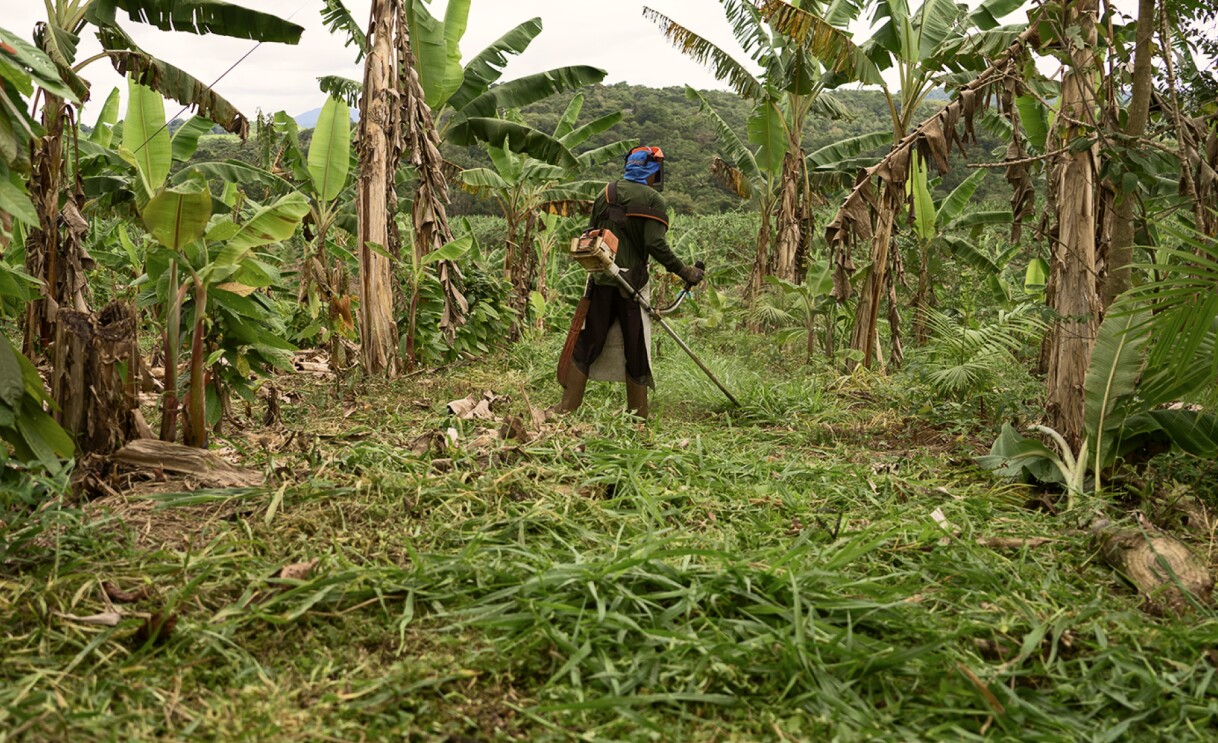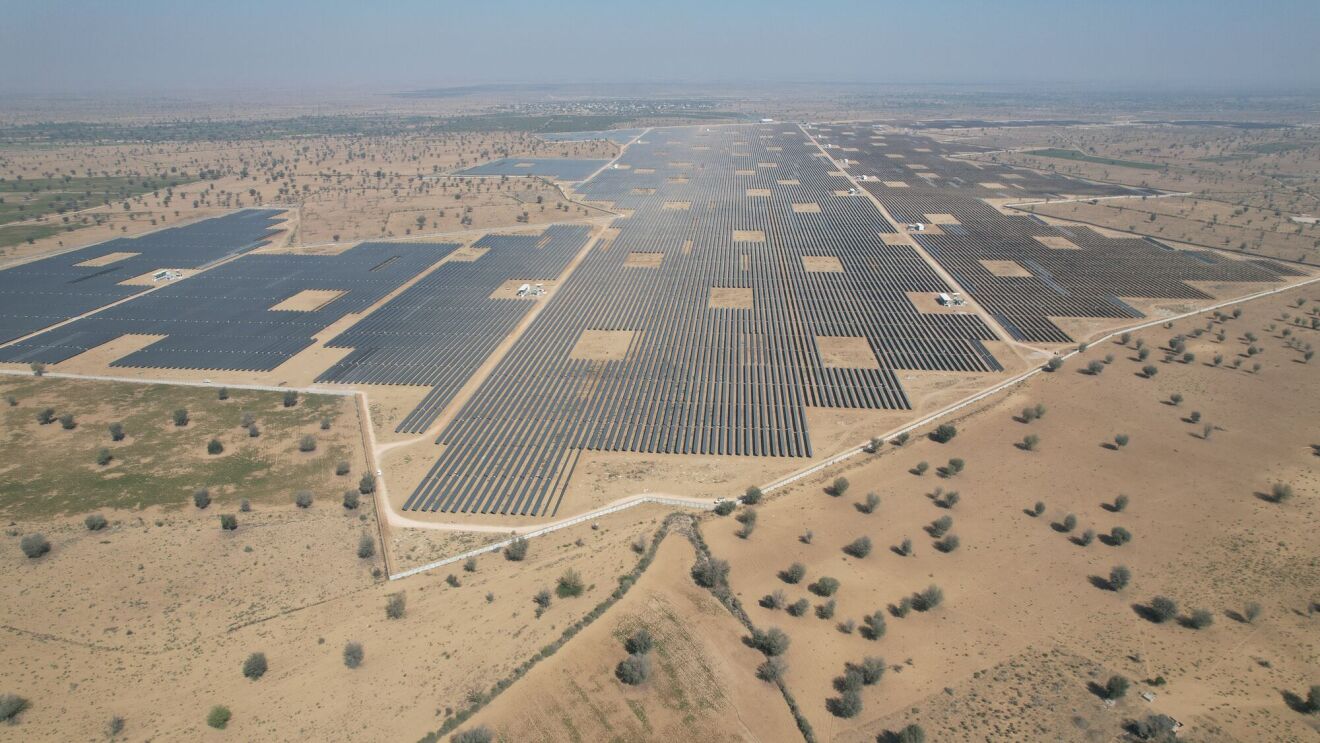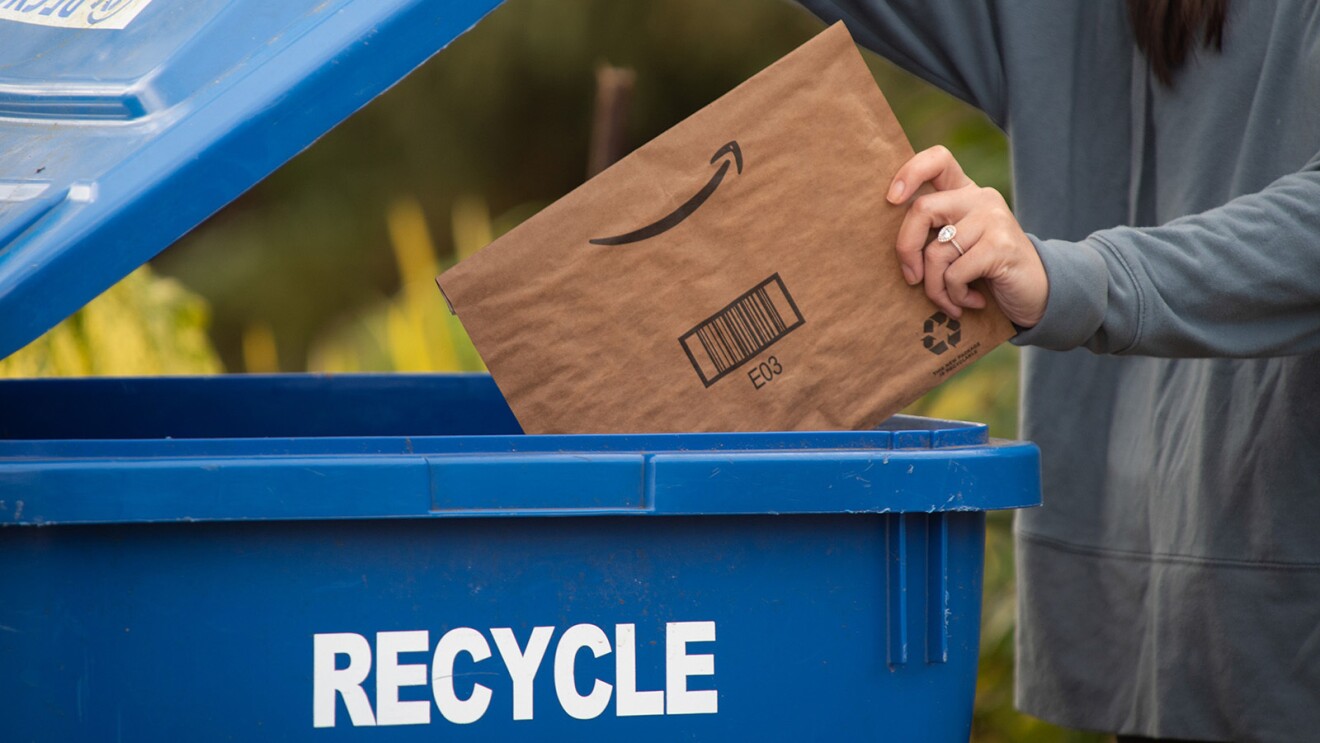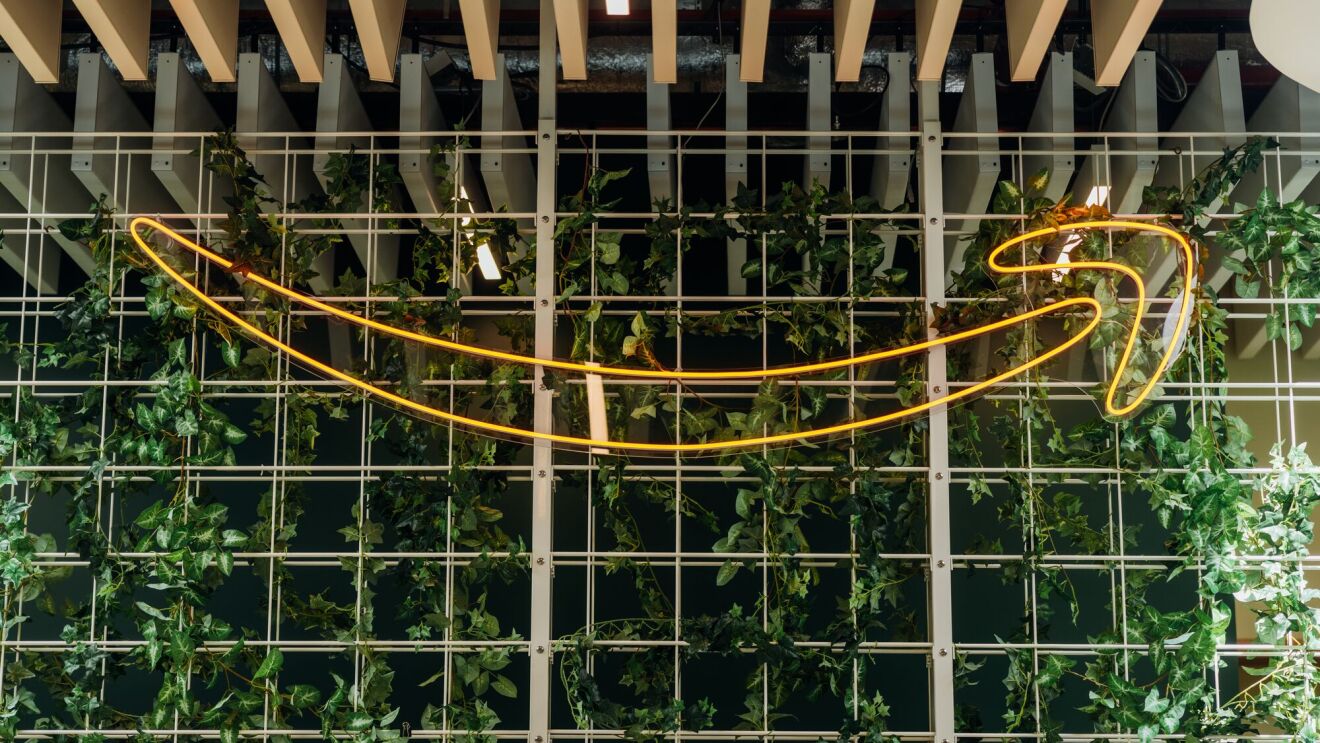- Measure and report greenhouse gas emissions on a regular basis.
- Implement decarbonization strategies in line with the Paris Agreement through real business changes and innovations, including efficiency improvements, renewable energy, materials reductions, and other carbon emission elimination strategies.
- Neutralize any remaining emissions with additional, quantifiable, real, permanent, and socially beneficial offsets to achieve net-zero annual carbon emissions by 2040—a decade ahead of the Paris Agreement’s goal of 2050.
“As the U.S. takes an important step forward in the fight against climate change by officially rejoining the Paris Agreement this week, I am excited to welcome 20 new companies to The Climate Pledge who want to go even faster,” said Jeff Bezos, Amazon founder and CEO. “Amazon co-founded The Climate Pledge in 2019 to encourage companies to reach the goals of the Paris Agreement 10 years early, and we’re seeing incredible momentum behind the pledge with 53 companies from 18 industries across 12 countries already joining. Together, we can use our collective scale to help decarbonize the economy and preserve Earth for future generations.”
Page overview
ACCIONA
ACCIONA (ANA.MC) is a global leader in sustainable solutions, ranging from renewable energy to water treatment plants, mass transit systems, and other resilient, low-carbon social infrastructure. The mitigation of climate change and its effects lies at the heart of the company’s business rationale. ACCIONA is the world’s greenest utility, operating solely with renewable energy, and an innovator in all fields of sustainable infrastructure. ACCIONA became carbon neutral in 2016, the first company in the energy and infrastructure sectors to do so. In line with the latest climate science, ACCIONA is committed to reducing its direct and energy consumption emissions by 60% between 2017 and 2030, as well as a 47% decrease in value chain emissions, consistent with the Paris Climate Agreement’s most ambitious goal of limiting global warming to no more than 1.5ºC above pre-industrial levels. ACCIONA’s emission-reduction targets have been certified by the Science Based Targets initiative (SBTi).
A leader in last mile operations, Colis Prive specializes in home and relay delivery, collecting parcels from e-merchants and executing final delivery. Since its founding in 1993, the company continues to take pride in pursuing consistent improvements in its delivery service. With four hubs across France and a network of 3,500 delivery associates, Colis Prive has delivered more than 63 million parcels. Knowing the significant impact of its operations on the environment, Colis Prive is committed to limiting its greenhouse gas (GHG) emissions, with a particular focus on reducing those resulting from last mile deliveries. The company is also doubling down on energy efficiency thanks to the implementation of the ISO 50 001 energy standard, aimed at providing global companies a precise framework for setting up an operational and sustainable energy management system to continually reduce their energy use.
As one of the largest food producers in Britain, Cranswick plc is committed to integrating sustainable practices throughout its operations, from farming to sourcing and producing. With its Second Nature sustainability strategy at the center, the company is focused on decarbonizing its farms and significantly reducing food loss and overall resource waste in its supply chain and production, all by 2040. In the last two years Cranswick plc has made significant progress, including switching to 100% renewable grid-supplied electricity, reducing edible food waste down to 0.4% of total production, and removing over 1,200 tonnes of plastic from its operations.
Based in Santa Marta, Colombia, Daabon Group is a leader in the production and processing of organic crops such as bananas, Hass avocado, coffee, and palm oil in South America. The company has worked extensively on circular economy to manage and develop its production processes in a sustainable way. Daabon was the first organic palm oil company to be certified sustainable by the Rainforest Alliance and RSPO in Latin America. The company has developed an innovative process that captures methane gas produced by the organic waste to be used as fuel for energy.
Serving more than 50 million passengers in over 150 cities across Europe, FREE NOW recognizes the urgent need for more environmentally friendly transportation. The company is already committed to shifting 50% of its FREE NOW vehicles across Europe to zero emissions by 2025 and making all passenger trips emission-free by 2030. To achieve these ambitious goals, the company is investing millions in supporting drivers to switch to electric vehicles and promoting electric options among customers.
Generation Investment Management (Generation), founded in 2004, is playing an integral role in the development of sustainable investing and in demonstrating the long-term benefits of this approach. The firm integrates sustainability factors into its investment decisions, engagement with portfolio companies, and a wide range of advocacy and impact initiatives. Generation is committed to aligning investment portfolios with net-zero greenhouse gas (GHG) emissions by 2040 or sooner, in line with the goals of the Paris Agreement on climate change. The firm is helping to lead efforts across the investment management industry to build a coalition of managers willing to make a collective commitment to the goal of net-zero emissions. In December 2020, this led to the launch of the Net Zero Asset Managers initiative on the fifth anniversary of the conclusion of the Paris Agreement. This initiative launched with 30 asset managers as founding signatories, responsible for over $9 trillion of assets under management.
The Green Britain Group exists in the pursuit of sustainability through business. Its main operations are Ecotricity, the world’s first green energy company, and Forest Green Rovers football club (FGR), recognized by the global governing body, FIFA, as the greenest in the game. Founded by Entrepreneur Dr. Dale Vince OBE, the Green Britain Group is focused on tackling environmental and sustainability issues in three areas: energy, transport, and food. Ecotricity now powers over 200,000 homes and businesses with 100% renewable electricity and carbon-neutral gas from its UK-wide network of wind and solar parks. FGR became the world’s first sports club to be certified carbon neutral by the United Nations in 2017 and is recognized as the world’s greenest football club. FGR has recently been granted planning permission for the construction of Eco Park, a pioneering, new all-wood stadium designed to showcase what’s possible in the pursuit of sustainability.
Hotelbeds is doubling down on its environmental commitments to help lead the charge in sustainable tourism. Certified Carbon Neutral by Carbon Footprint Ltd. for the third year running, the company, which works closely with Global Sustainable Tourism Council (GSTC), the company is already making great strides, prioritizing carbon reduction across its operations. In 2020, the company launched The Green Hotels Program with the goal of accelerating the transition of the travel industry toward sustainability. Hotelbeds now has over 15,000 hotel property partners within its portfolio certified as sustainable.
IBM is committing to reach net zero by 2030 as part of its efforts to protect the planet. IBM has been committed to environmental leadership for decades, having issued its first corporate policy on environmental responsibility in 1971. The company has disclosed its environmental performance since 1990, began disclosing its CO2emissions in 1995, and has sustained a goal to reduce CO2 emissions since 2000. In 2007, IBM publicly stated its position on climate change, saying that "climate change is a serious concern that warrants meaningful action on a global basis to stabilize the atmospheric concentration of greenhouse gases.” The company supported the Paris Agreement in 2015, and in 2017 publicly reiterated its support for the U.S. to remain a party to it. In 2019, IBM became a founding member of the Climate Leadership Council, supporting its bipartisan plan for a carbon tax with carbon dividend.
Iceland Foods seeks to build a growing, profitable, and responsible business that does the right thing for its customers, partners, communities, and the planet. The company has a long history of caring for the environment and exercising sustainable practices, aligning its ambitions with the United Nations’ Sustainable Development Goals. Iceland Foods is focused on eliminating single-use plastics, and developing solutions and implementing changes to cut the carbon and waste associated with food and drink. The company has already made great strides in reducing its carbon footprint by 74% since 2011.
For over 25 years, global flooring manufacturer Interface has focused on climate action–first by reducing the carbon emissions in its operations and supply chain, and then by reducing the carbon emissions of its products. Last year, Interface introduced the world’s first carbon negative carpet tile when measured cradle to gate, and in 2018, the company launched its Carbon Neutral Floors program, certifying that all Interface flooring products are carbon neutral across their full product life cycle. Recognizing it can go even further, Interface continues to look at additional carbon reduction opportunities with the goal of becoming a carbon negative enterprise by 2040.
Johnson Controls is the global leader in smart, healthy, and sustainable buildings. Its mission is to reimagine the performance of buildings to serve people, places, and the planet. With a long-standing commitment to protecting and preserving the environment, the company is focused on empowering customers and communities to streamline building operations and deliver energy efficiencies that will help them meet their environmental goals. Johnson Controls is driving sustainability across its entire value chain by focusing on solutions, people, partnerships, performance, and governance. The company has already made great strides in reducing its greenhouse gas emissions intensity, increasing its reliance on clean energy, and improving waste reduction across many of its plants.
MiiR is a generosity-driven company that creates thoughtfully designed drinkware through its social and environmental mission. Every MiiR product sold helps fund trackable projects around the world and to-date has granted $1.6 million to nonprofits focused on social and environmental causes. Since MiiR was founded in 2010, the company has partnered with numerous nonprofits across the world to fund long term, sustainable projects in the water, sanitation, and hygiene (WASH) sector. The company has also launched numerous projects focused on protecting and preserving the planet’s natural resources for generations to come, as well as investing in organizations and programs that build strong communities. MiiR empowers its customers to know the impact of their purchase, including a Give Code on every product which enables customers to see how their purchase is helping fund these ongoing giving projects.
Ørsted is committed to reaching carbon neutral energy generation and operations by 2025. Previously one of the most fossil fuel intensive utilities in Europe, now ranked the most sustainable energy company in the world by the 2021 Global 100 index, Ørsted has already made meaningful strides toward this ambitious commitment. Since 2006, Ørsted has shrunk its own carbon emissions by 87%. Today, more than 30% of the world’s offshore wind power is installed by Ørsted, and it operates the world’s largest offshore wind farm, Hornsea 1 in the UK, powering well over a million UK homes.
Today two members of Prosegur Group, Prosegur Compañia de Seguridad and its subsidiary Prosegur Cash, are committing to net-zero carbon emissions by 2040, reinforcing the company’s focus on sustainable operations. As a global leader in private security, Prosegur Group is committed to lead by example in reducing its environmental impact, generating quality employment, ensuring the health and safety of its workers, complying with regulations, and respecting human rights and good governance. Prosegur Group is already targeting decarbonization of its vehicle fleet, introducing hybrid and electric vehicles into its operations and commercial fleets. Prosegur Cash has also introduced the world's first 100% electric armored truck, a zero-emission vehicle.
Slalom is committed to operating every part of its business in ways that are sustainable and responsible, while creating innovative solutions to the world’s biggest challenges. The company released its first corporate social responsibility report last year, which included aspirational goals to achieve carbon-neutral emissions and shift to 100% renewable energy by 2030. As Slalom advances its own corporate responsibility efforts across its operations, the company is also scaling its expertise to help customers do the same.
S4Capital’s ambition to apply the power of creativity and technology to the greater good is evidenced in a series of actions: its support for the Ten Principles of the UN’s Global Compact on Human Rights, Labour, Environment, and Anti-Corruption; its signing the EU Green Deal; and its commitment to report GHG emissions from 2020. Realizing its role in helping brands transform both inside and out, S4Capital is dedicated to adopting exemplary sustainable practices unique among its peers in the creative and marketing industry.
Learn more about the company’s sustainability commitments and why they joined The Climate Pledge.
UPM is a global forest industry leader with a purpose to create a future beyond fossils. The company offers renewable and recyclable alternatives. The company offers renewable and recyclable alternatives to fossil-based materials and products to meet the growing global demand for sustainable options. UPM strives to mitigate climate change and drive value creation through innovating novel products, by practicing sustainable forestry, and through significant emission reduction in its own production and supply chain. UPM is committed to the United Nations’ Business Ambition for 1.5°C initiative, and the company’s 65% emission reduction target by 2030 is approved by The Science Based Target initiative. UPM wants to take an active role by collaborating with scientific and other partners in order to drive the change together and to reach highest possible impact.
As a material handling and logistics company, Vanderlande has prioritized sustainability as a key principle of its activities. Through its solutions, the company aims to contribute to its customers’ sustainable objectives. Vanderlande is focused on optimizing its energy efficiency across its operations. The company has implemented energy monitoring software at all of its key customer sites, and it has combined the use of energy efficient technology with having process engineers at a growing number of sites in order to improve energy consumption.
Trending news and stories


